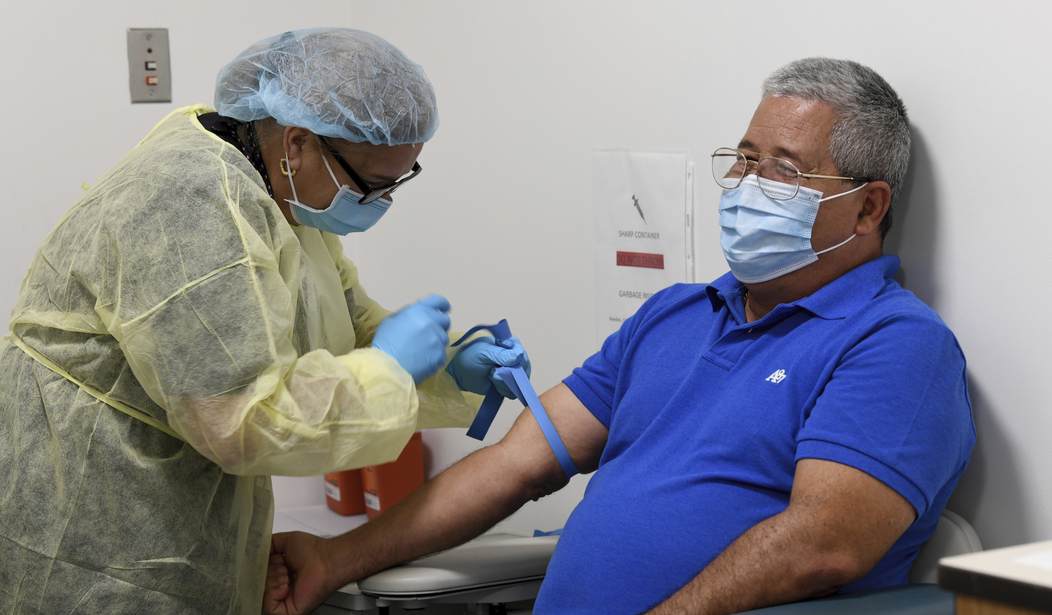Now that the Federal Drug Administration (FDA) has granted an Emergency Use Authorization (EUA) for the Pfizer and Moderna coronavirus vaccines, Americans across the country – particularly frontline workers like nurses, doctors, EMTs and other first responders – are wondering what the guidelines are for receiving the drugs. Some Americans also want to know if an employer can legally require them to get the vaccination now that it is becoming readily available.
The U.S. Equal Employment Opportunity Commission (EEOC) on Wednesday issued guidelines saying employers can require their employees to obtain the Wuhan coronavirus vaccine. The federal agency said this requirement does not violate the Americans With Disabilities Act of 1990, commonly referred to as the ADA.
Employers can require their workers to receive the vaccine because they are not screening for a disability or seeking information about an employee's physical or mental condition.
"If a vaccine is administered to an employee by an employer for protection against contracting COVID-19, the employer is not seeking information about an individual’s impairments or current health status and, therefore, it is not a medical examination," EEOC guidelines on the Wuhan coronavirus state. "Although the administration of a vaccination is not a medical examination, pre-screening vaccination questions may implicate the ADA’s provision on disability-related inquiries, which are inquiries likely to elicit information about a disability. If the employer administers the vaccine, it must show that such pre-screening questions it asks employees are 'job-related and consistent with business necessity.'"
Recommended
Things, however, get a bit murky when it comes to "reasonable exceptions."
If an employer requires workers to obtain the coronavirus vaccine and he or she is unable to take it due to a disability, a "reasonable accommodation" must take place. That accommodation can include things like telecommuting or not showing up to the office. If a reasonable accommodation can't be made, like in the case of a vaccination requirement, the employee can either telecommute or take a leave under the Families First Coronavirus Response Act (FFCRA).
"If an employee cannot get vaccinated for COVID-19 because of a disability or sincerely held religious belief, practice, or observance, and there is no reasonable accommodation possible, then it would be lawful for the employer to exclude the employee from the workplace. This does not mean the employer may automatically terminate the worker," the EEO guidelines state. "Employers will need to determine if any other rights apply under the EEO laws or other federal, state, and local authorities."
Lawmakers are doing everything in their power to encourage Americans to get the coronavirus vaccine, in hopes of quickly creating herd immunity. Vice President Mike Pence and Second Lady Karen Pence publicly received the vaccine on Friday, Rep. Alexandria Ocasio-Cortez (D-NY) documented her experience having her first injection and Sen. Lindsey Graham (R-SC) shared pictures of him getting his first dose as well. Other prominent members of Congress who received the vaccine include Sens. Elizabeth Warren (D-MA) and Ed Markey (D-MA).
President Donald Trump has said he would get the Wuhan coronavirus vaccine.

























Join the conversation as a VIP Member